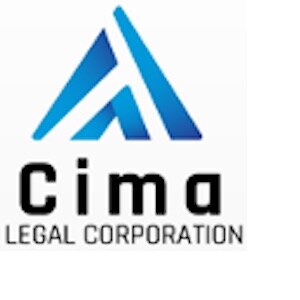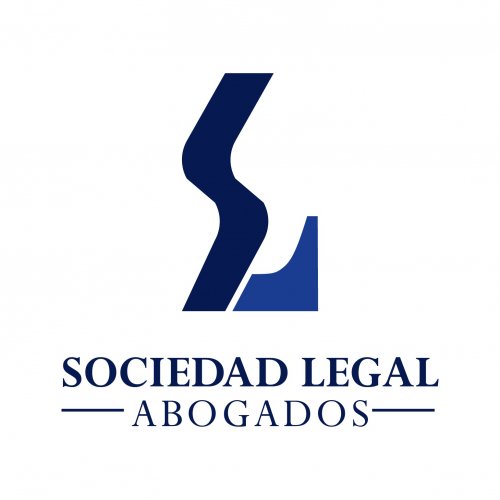Best Private Equity Lawyers in Ecuador
Share your needs with us, get contacted by law firms.
Free. Takes 2 min.
Or refine your search by selecting a city:
List of the best lawyers in Ecuador
About Private Equity Law in Ecuador
Private equity in Ecuador involves investments in privately held companies or assets, typically through funds that pool capital from various investors to acquire ownership stakes in these businesses. The private equity sector in Ecuador has grown in response to a developing entrepreneurial ecosystem, underscored by increasing interest from both local and international investors. While private equity transactions can offer high returns and strategic business growth, they also come with a unique set of legal requirements and risks that demand careful navigation. Ecuadorian law governs these investments with a combination of corporate, financial, and tax regulations, making legal guidance essential for successful transactions.
Why You May Need a Lawyer
Engaging in private equity transactions in Ecuador can be complex and involves substantial financial and reputational stakes. The following are common scenarios where legal help is crucial:
- Structuring investment funds that comply with local laws
- Conducting due diligence on target companies to identify legal risks
- Drafting and negotiating acquisition and shareholder agreements
- Ensuring regulatory compliance with Ecuador's financial authorities
- Advising on tax optimization and structuring
- Navigating exits, divestitures, or restructuring processes
- Addressing disputes among partners or with government entities
Local Laws Overview
Private equity activity in Ecuador is regulated through a variety of laws and governmental agencies. Key aspects include:
- Company Law: The Companies Law (Ley de Compañías) sets out the legal forms for businesses, requirements for foreign investment, and shareholder rights. Most private equity investments structure target companies as limited liability companies (sociedades de responsabilidad limitada) or corporations (sociedades anónimas).
- Financial Regulation: The Superintendency of Companies (Superintendencia de Compañías, Valores y Seguros) oversees the registration and operation of companies and funds, including compliance with reporting standards.
- Banking and Securities Law: The Securities Market Law (Ley de Mercado de Valores) regulates fundraising through capital markets. Private equity funds may be subject to registration and reporting requirements if they manage public resources or large groups of investors.
- Foreign Investment Law: Ecuador encourages foreign investment but requires compliance with registration, licensing, and exchange controls in some sectors. Some strategic industries have restrictions regarding foreign ownership.
- Taxation: Tax planning is crucial due to capital gains tax, VAT, and other fiscal obligations triggered by acquisitions or divestitures. Double taxation treaties may apply.
- Labor and Employment: Labor laws are investor protective and affect due diligence, especially when restructuring a portfolio company.
- Antitrust Law: Large transactions may require approval from the antitrust authority (Superintendencia de Control del Poder de Mercado).
Frequently Asked Questions
What is private equity and how does it work in Ecuador?
Private equity refers to investments made in private (non-publicly traded) companies, often to grow, restructure, or acquire them. In Ecuador, such investments are regulated under local company and financial laws and usually require careful legal structuring.
Do I need to establish a local entity to invest in Ecuadorian companies?
While direct investments are possible, most investors establish a local company or use an investment fund structure to manage private equity investments for tax, liability, and regulatory reasons.
Are there any restrictions on foreign investors in Ecuador?
Foreign investors are generally welcome but must comply with sector-specific restrictions and sometimes need authorization for investments in strategic industries such as telecommunications, oil, and mining.
How is due diligence conducted in private equity deals?
Due diligence in Ecuador covers legal, financial, and operational aspects of a target. It is essential to check corporate documentation, tax compliance, labor matters, and potential liabilities.
What are common structures for private equity investments?
The most common structures are limited liability companies or corporations. Some funds also use trusts or foreign holding companies depending on tax and regulatory considerations.
How are exits handled in Ecuador?
Exits can occur through share sales, mergers, initial public offerings, or buybacks. Each exit type has specific regulatory and tax implications that should be assessed beforehand.
What taxes apply to private equity transactions?
Key taxes include capital gains tax, value-added tax (on certain assets), income tax, and stamp duties. Favorable conditions or exemptions may apply for foreign investors based on tax treaties or investment agreements.
How does Ecuador protect minority shareholders?
Ecuadorian law provides rights to minority shareholders, such as access to information, preemptive rights, and protections against illegal actions by the majority. However, practical enforcement may require legal support.
Is regulatory approval needed for private equity transactions?
Some transactions, especially those above certain thresholds or in regulated sectors, require notification or approval from the Superintendency of Companies or the antitrust authority.
What should I look for in a private equity lawyer in Ecuador?
Choose a lawyer or law firm with proven experience in corporate, financial, and tax law, and who understands the local market, government procedures, and international standards relevant to private equity.
Additional Resources
If you need reliable guidance, consider these resources:
- Superintendencia de Compañías, Valores y Seguros: The main authority for company and securities regulation in Ecuador.
- Superintendencia de Control del Poder de Mercado: Oversees competition and antitrust matters.
- Ministry of Production, Foreign Trade, Investments and Fisheries: Provides information and incentives for foreign investors.
- Chambers of Commerce: Offer networking opportunities and information about private investment regulations.
- Ecuadorian Association of Private Equity and Venture Capital: An organization supporting the development of private equity in the country.
Next Steps
If you are considering a private equity investment or partnership in Ecuador, it is recommended to take the following actions:
- Consult with a legal professional who has expertise in private equity law and the Ecuadorian regulatory environment
- Prepare a list of questions and objectives for your investment or partnership
- Gather relevant documentation such as company records, financial statements, and past contracts
- Discuss structuring options and potential risks with your lawyer
- Ensure due diligence is thoroughly conducted before committing capital
- Develop clear contractual agreements that defend your interests
- Stay informed about any changes in local regulations that may impact your investment
Securing experienced legal advice can help you navigate the complexities of private equity in Ecuador, minimize risks, and maximize your opportunities for success.
Lawzana helps you find the best lawyers and law firms in Ecuador through a curated and pre-screened list of qualified legal professionals. Our platform offers rankings and detailed profiles of attorneys and law firms, allowing you to compare based on practice areas, including Private Equity, experience, and client feedback.
Each profile includes a description of the firm's areas of practice, client reviews, team members and partners, year of establishment, spoken languages, office locations, contact information, social media presence, and any published articles or resources. Most firms on our platform speak English and are experienced in both local and international legal matters.
Get a quote from top-rated law firms in Ecuador — quickly, securely, and without unnecessary hassle.
Disclaimer:
The information provided on this page is for general informational purposes only and does not constitute legal advice. While we strive to ensure the accuracy and relevance of the content, legal information may change over time, and interpretations of the law can vary. You should always consult with a qualified legal professional for advice specific to your situation.
We disclaim all liability for actions taken or not taken based on the content of this page. If you believe any information is incorrect or outdated, please contact us, and we will review and update it where appropriate.
Browse private equity law firms by city in Ecuador
Refine your search by selecting a city.

















